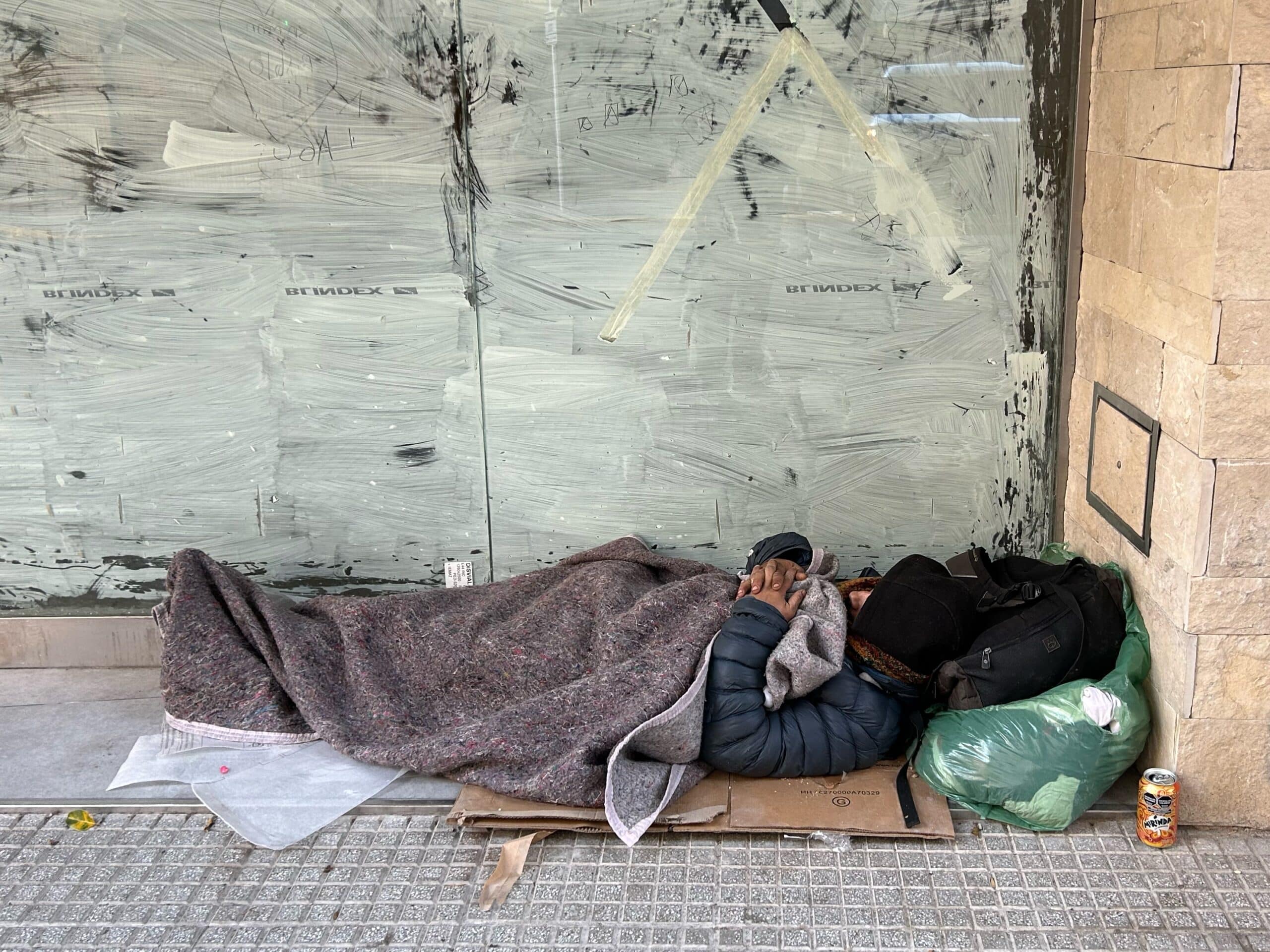
A homeless sleeps outside a closed store in Buenos Aires on August 9, 2024. – Poverty in Argentina reached 41,7 percent in the second half of 2023, according to Argentina’s National Institute of Statistics and Censuses (Indec), which will release its next measurement in September 2024. (Photo by Juan MABROMATA / Agence France-Presse)
BUENOS AIRES — Poverty in Argentina rose to affect over 52 percent of the population in the first six months of self-declared “anarcho-capitalist” Javier Milei’s presidency, according to official data released Thursday.
The report for the first half of 2024 showed that 52.9 percent of Argentina’s 47 million people now live in poverty and nearly one in five are indigent.
Article continues after this advertisementThe poverty figure was up from 41.7 percent in the second half of 2023, said the INDEC statistics agency.
FEATURED STORIES BUSINESS National ID gives more Filipinos ‘face value BUSINESS BIZ BUZZ: Unwinding Gogoro … quietly BUSINESS Polvoron maker seeks P500 million capital for expansionSince taking office in December, Milei’s government has applied a drastic austerity program with the aim of eliminating the budget deficit and taming chronic inflation.
It has slashed subsidies for transport, fuel and energy, even as thousands of public servants lost their jobs.
Article continues after this advertisementMonthly inflation in Argentina came in at 4.0 percent July, the lowest in 2.5 years, before rising again to 4.2 percent in August.
Article continues after this advertisementThe annual figure of 236.7 percent in August remains one of the highest in the world.
Article continues after this advertisementREAD: No Poverty by 2030: The global fight against extreme want
In December, when Milei took office, monthly inflation leapt by 25.5 percent after he devalued the peso by more than 50 percent.
Article continues after this advertisementThe move, in addition to severe budget cuts, strangled purchasing power.
In January, the government reported its first monthly budget surplus in nearly 12 years.
‘We have all become poorer’Critics say Milei’s few successes have come at the cost of the poor and working classes.
GDP fell 1.7 percent in the second quarter and unemployment rose to 7.6 percent, with women hardest hit.
“In a country where poverty is measured by income, we have all become poorer,” presidential spokesman Manuel Adorni said Thursday ahead of the INDEC release, which he predicted would reflect a “harsh reality.”
“The best way to fight against poverty is to fight against inflation,” he added.
Economist Marina Dal Poggetto said this approach “excludes a lot of people” and “creates an increasingly broken society.”
READ: Filipinos’ wallets fatter, but PH still among Asia’s poorest
One such person is Viviana Quevedo, 57, who lost her job as a maid in December and has been unable to find a new one.
She spoke to Agence France-Presse on a Buenos Aires sidewalk, holding up a sign declaring: “Work wanted.”
Quevedo said she lost her accommodation as she could no longer afford her rent and was on the verge of ending up on the street, having spent her last money on a hotel for herself and her 13-year-old daughter.
She said she received the equivalent of $85 from the government for child care – far from the $108 a month a person needs not to qualify as indigent.
“The reality we are living is terrifying; there is a great fear because hunger brings fear, hunger brings terror,” Quevedo said from behind the face mask she wears to hide her missing teeth.
Subscribe to our daily newsletter
“I have never experienced a situation like this in my liferich ph,” she said.
READ NEXT Cryptocurrency platform boss urges tighter regulation China’s slowdown highlights economic inequality in Shanghai EDITORS' PICK Kristine gets nearer; Metro Manila, 42 other areas under Signal No. 1 NBA: Nuggets give Aaron Gordon 4-year, $133M extension Sandro Marcos calls out VP Sara Duterte: ‘You crossed the line’ Party-list system: What to know ahead of 2025 polls WPS: US missile deployment to PH key for combat readiness – US general Heart Evangelista: Woman to woman, I never had a problem with Pia Wurtzbach MOST READ SC issues TRO vs Comelec resolution on dismissed public officials Tropical Storm Kristine slightly intensifies; Signal No. 2 in 5 areas LIVE UPDATES: Tropical Storm Kristine Espenido retracts drug-related allegations vs De Lima View comments
